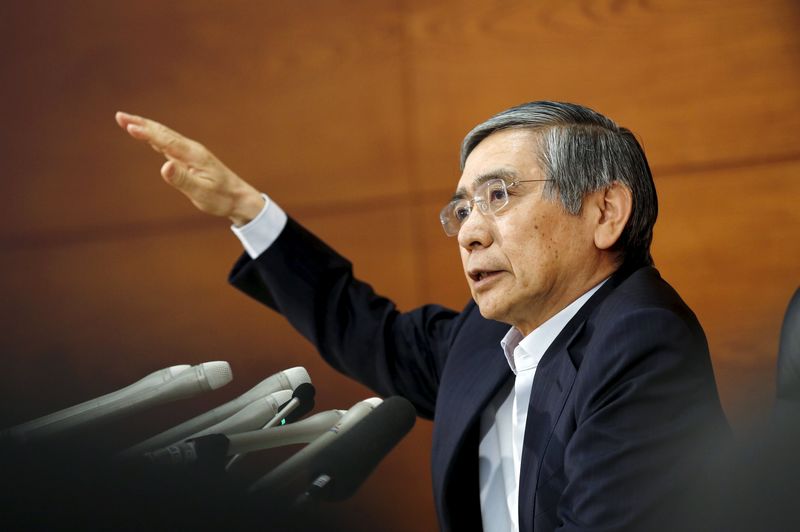(Bloomberg) -- Bank of Japan Governor Haruhiko Kuroda is certainly putting his money where his mouth was, after repeated expressions of concern about excessively low bond yields.
To be precise, he’s putting up less money -- in the regular BOJ bond-purchase operations that have served as a component of the central bank’s stimulus programs since Kuroda took office in 2013. The current buying pace would see the BOJ take just 5 trillion yen ($46 billion) of Japanese governments bonds (JGBs) in 2020, according to calculations by Yuki Masujima at Bloomberg Economics.
That’s less than the 6 trillion yen annual target for the BOJ’s purchases of equity exchange-traded funds, which have served as a supplemental component of Japan’s stimulus. And it’s just a fraction of the official target of 80 trillion yen that’s been disregarded for some time now.
The downshift in bond purchases follows the powerful rally in sovereign bonds over the past year, which sent Japan’s 10-year yields below the BOJ’s loose target range of 0.2% to negative 0.2%. In early September, even 20-year yields approached 0%. Ten-year yields were at -0.153% at 2:35 p.m. in Tokyo.
Super-low long-term yields threatened to be counterproductive to the BOJ’s policies. Kuroda said after last month’s policy meeting that excessively low yields would damage consumer sentiment as returns on pensions and other long-term investments would drop.
The market is listening: on Tuesday, demand at a government auction for 10-year notes dropped to the lowest level since August 2016. That last time was days after the BOJ had launched a comprehensive review of its policy framework.
And that auction in turn sparked the biggest sell-off in Japanese government bond futures in more than three years.
Meantime, ETF purchases offer a steady source of support for Japan’s stocks, which just capped their best month since October 2017 -- the time of global synchronous growth.
